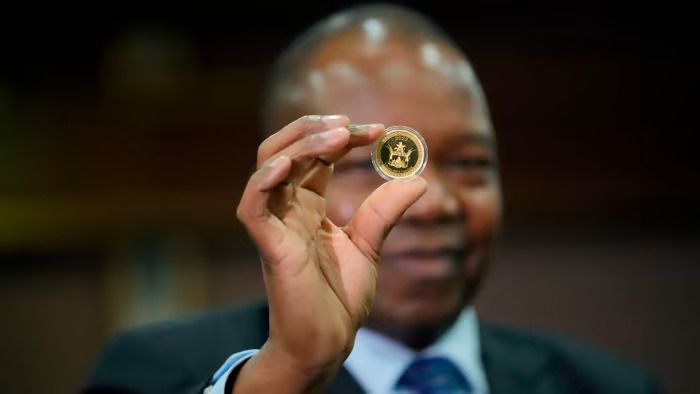What we know about the Zimbabwean gold-backed digital currency
Zimbabwe has launched a gold-backed digital currency. It will be used as legal tender alongside the Zimbabwean dollar.

Earlier this week, the Reserve Bank of Zimbabwe (RBZ) launched a gold-backed digital currency in a bid to reduce the country’s reliance on the US dollar and cushion the hyperinflation which rose to 285% last year.
The digital currency will be recognised as legal tender alongside the Zimbabwean dollar and bond notes. Investors are purchasing the digital token at a minimum price of $10 for individuals and $5000 for corporations.
The Zim gold-backed currency will complement the Mosi-oa-Tunya coins that were launched in 2022. "Holders of physical gold coins, at their discretion, will be able to exchange or convert, through the banking system, the physical gold coins into gold-backed digital tokens," the bank said.
Unlike the Nigerian digital currency—e-Naira—which is backed by the fiat currency, Naira, the Zim digital currency is tied to the market value of gold. Reports say Zimbabwe has 350kgs (12,346 ounces) of gold in reserves (around $23 million), and intends to build reserves to around $100 million.
However, Tendai Biti, the former finance minister in the country described the introduction of the currency as "bad economics in a country without any significant reserves [of gold]". "The Zimbabwe dollar has failed because of the absence of trust [...] The digital currency will suffer the same brutal fate that the local dollar has suffered," Biti tweeted.
The International Monetary Fund (IMF) has expressed also concern about the digital currency. According to an IMF spokesperson, "a careful assessment should be conducted to ensure the benefits from this measure outweigh the costs and potential risks including, for instance, macroeconomic and financial stability risks, legal and operational risks, governance risks, cost of forgone FX reserves."
How will the Zim digital currency be issued?
According to John Mangudya, RBZ governor, the digital currency will be issued in two phases:
"Phase one: Gold-backed digital tokens will be issued for investment purposes with a vesting period of 180 days and redeemable in the same way as the existing physical gold coins.
The tokens will be available for sale, through banks, in both foreign currency and Zimbabwe dollar. Banks will create dedicated or specific accounts for the holding of the gold-backed digital tokens (e-gold wallets or e-gold cards). Holders of physical gold coins, at their discretion, will be able to exchange or convert, through the banking system, the physical gold coins into gold-backed digital tokens.
Phase two: The gold-backed digital tokens held in either e-gold wallets or e-gold cards will be tradable and capable of facilitating Person-to-Person (P2P) and Person-to-Business (P2B) transactions and settlements. It therefore means that the gold-backed digital tokens would be used both as a means of payment and a store of value."







Comments ()